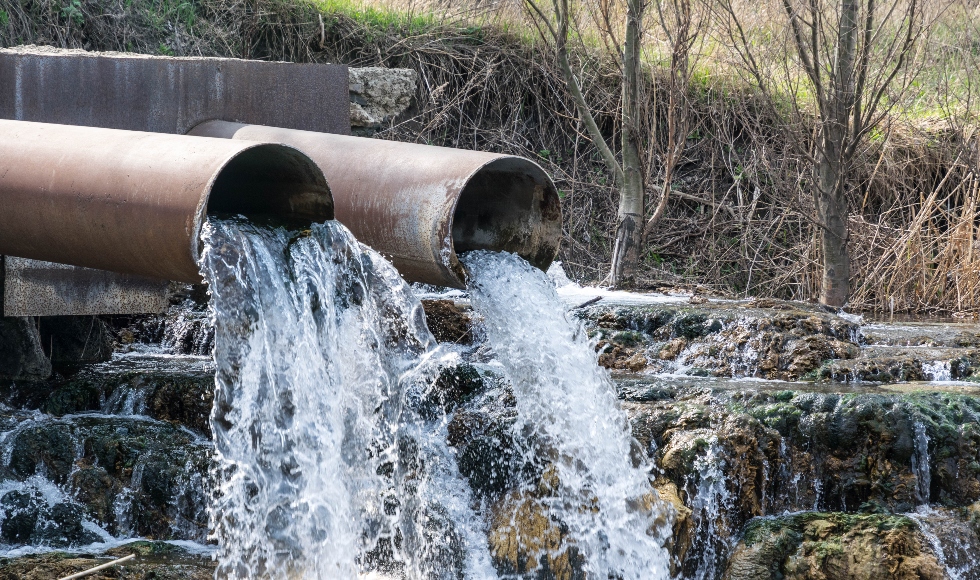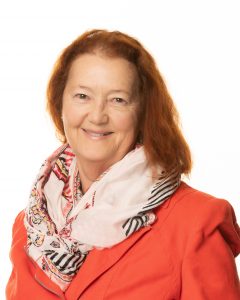“I’m trying to put a human face on what we think are environmental and social problems”

Image by Shutterstock
BY Sara Laux
January 26, 2020
One bright June morning when Nancy Doubleday was five years old, she found a pile of dead birds and an oozing puddle of “black gunk” in a drainage ditch close to her house, 40 kilometres from Sarnia.
“I knew right away – even as a five year old – that this was caused by stupid humans,” she says. “What I didn’t know was why.”
That was her first glimpse into what she calls “the ills of the world.” And the rage she felt – and the desire to fix the problem – never left her.

Perhaps that explains Doubleday’s mix of academic pursuits – an undergraduate degree in biological sciences, a law degree, a PhD in biology, and, currently, an appointment in McMaster’s philosophy department, teaching peace studies.
Doubleday joined McMaster University as the inaugural holder of the Hope Chair in Peace and Health, a position that inspired her to bring complex systems research to the intersection of peace studies and health care.
And while that’s a broad landscape, encompassing areas like social and restorative justice, healthcare ethics, global health crises and communities in crisis, much of Doubleday’s work focuses on the sometimes muddy waters that swirl around the areas of social justice, sustainability, ecological health and equity, and education – “trying to make a place where science and wisdom can talk about knowledge, together.”
Doubleday’s priority is to get her students – many of them in first year – to think carefully about the systems that create inequity within society, and to practice, through work in class and with their assignments, the skills needed to ensure that a diversity of voices are considered when proposing solutions to complex issues.
To do that, Doubleday has students concentrate on environmental issues because “when the environment is screwed up, then you see a lot of human rights abuses.” For example, natural resources are intimately connected to conflict, as seen in many of the recent skirmishes in Central America and parts of Africa that have centred on resource scarcity and access issues.
By focusing on human rights and the UN’s Sustainable Development Goals, students also gain a high-level understanding of the intersection of peace, health, sustainability and justice, and the complexities that go along with them. She points to the ongoing water quality issues in Indigenous communities as an example of a problem that has deep roots in historical injustices; including denial of recognition of rights, and access to resources, and, more recently, to industrial appropriation of water.
“The most important lesson for my first-year students to learn is that violence is systemic,” she explains. “We have a long history of failing to be equitable and fair in our dealings. We create injustice and we create resentment, and so we have a legacy to deal with.
“I try to create learning communities within my classes so people can learn to engage with each other. We may not agree with someone, but we can at least respect the person, and then we can engage.”
Doubleday has a long history of pushing for systemic change and for playing the long game. She spent many years working in Arctic communities: contributing to land claims and their protection through a constitutional amendment, and helping to establish the Northern Contaminants Research Program and the Finnish Initiative for an Arctic Environmental Protection Strategy (which created a forum for the eventual formation of the international Arctic Council).
Closer to home, Doubleday was instrumental in establishing the legality of using conservation easements – purchasing the development rights to property and securing them in a land trust – to preserve the areas surrounding the Bruce Trail. More recently, she’s been involved with the United Nations University’s Institute for Water, Environment and Health, as Director of the McMaster University – UNU-INWEH Water Without Borders Joint Graduate Diploma Program.
Committed to engaged and experiential research, Doubleday works with other McMaster researchers as part of the Boreal Water Futures program, and the Co-Creation of Indigenous Water Quality Tools program, funded by Global Water Futures.
“If some of us don’t have peace, then none of us can have it. It’s a shared resource, just like water,” says Doubleday. “We want to have a water system that supports life on earth, as well as us, but like so many resources, we need to share it more equitably, more justly and more sustainably.”
With grim daily news about climate change, species extinction and plastic pollution, Doubleday’s work has taken on a more urgent momentum – and a greater need to respond to “ecocidal despair” by pushing for conversation and engagement, by empowering her students, and by sharing her experience and knowledge to create opportunities for change.
“I’m an optimist because I do know that change is possible, but I also know that change is a long-term project,” she says. “We are in a position to course-correct, but we all have to do some serious reflecting – and take respectful action.
“Hope is better than despair. There is daylight, there are beautiful things in this world and we can take care of them.”


